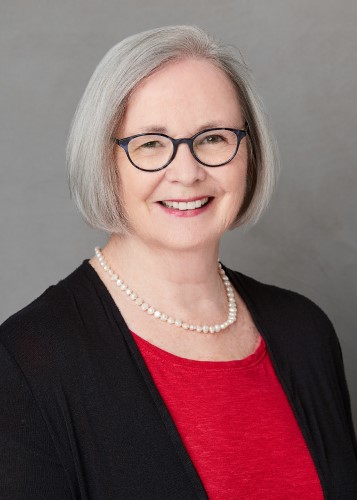MEG Imaging Study to Improve Early Detection and Intervention in Auditory Processing Disorders
 Dr. Deborah Moncrieff, Research Associate Professor in the School of Communication
Sciences and Disorders at the University of Memphis, was recently awarded a $25,000
grant from the Urban Child Institute. The grant will fund her collaborative research
project, “Unveiling the role of dichotic listening in academic challenges: An MEG
study of brain correlates in elementary school children,” with Dr. Roozbeh Rezaie,
Associate Professor at UT Health Sciences Center and Director of the MEG Lab at LeBonheur
Children’s Hospital. This project will deepen our understanding of how brain activity
relates to auditory processing challenges that affect learning outcomes in children.
Dr. Deborah Moncrieff, Research Associate Professor in the School of Communication
Sciences and Disorders at the University of Memphis, was recently awarded a $25,000
grant from the Urban Child Institute. The grant will fund her collaborative research
project, “Unveiling the role of dichotic listening in academic challenges: An MEG
study of brain correlates in elementary school children,” with Dr. Roozbeh Rezaie,
Associate Professor at UT Health Sciences Center and Director of the MEG Lab at LeBonheur
Children’s Hospital. This project will deepen our understanding of how brain activity
relates to auditory processing challenges that affect learning outcomes in children.
The focus of Dr. Moncrieff’s research is dichotic listening, a task where a person hears different words simultaneously in each ear. “In our lab, we’re studying children with dichotic listening deficits by comparing their performance to that of children without deficits,” Dr. Moncrieff explains. The research integrates behavioral measures of attention, working memory, psychoacoustics, and electrophysiology to identify and characterize different patterns of dichotic deficits. The goal is to develop a standardized protocol with a reliable test battery for accurately diagnosing these auditory processing issues.
While her lab projects primarily use behavioral and electrophysiological techniques, this grant will allow Dr. Moncrieff and Dr. Rezaie to incorporate magnetoencephalography (MEG) imaging. “The MEG study will provide us with a view of how the brain responds to dichotic stimuli, offering new insights into brain function that behavioral measures alone can’t capture,” she explains. This neural data will be crucial in early identification of children with auditory processing deficits and the development of targeted interventions. It will ultimately provide a long-term method for evaluating the benefits of treatment in children with dichotic deficits.
Dichotic listening is the most prevalent auditory processing problem associated with learning problems in children. Research shows that severe dichotic deficits occur in 11-20% of school-age children, far more frequently than previously thought. These deficits are often misdiagnosed as language or reading problems, leading children to therapy programs that don’t address the root problem: their inability to process auditory information accurately. “Even with early therapy for language or reading, many of these ‘remediation resistant’ children make little progress because the underlying auditory processing problem hasn’t been resolved,” Dr. Moncrieff notes. “Our goal is to change that by identifying these deficits earlier and providing effective treatments.”
The grant will enable Dr. Moncrieff to create a dataset of normal auditory processing responses, helping audiologists and educators recognize dichotic deficits more easily and the need to provide these children with treatment. In the long term, Dr. Moncrieff is working on a patented device that will allow for quick and easy screening and treatment of dichotic deficits, with minimal instructions required. “We aim to develop a tool that can be used universally, across different languages,” she shares. The lab is already working on Spanish translations and plans to expand into Portuguese and French.
Dr. Moncrieff emphasizes the importance of her work in Memphis, where the prevalence of dichotic deficits may be higher than in other regions, possibly due to environmental factors like lead exposure. “Growing awareness of the link between heavy metal exposure and auditory processing deficits has sparked an interest in vulnerable populations, including children in Memphis-Shelby County Schools,” she explains. The study will help identify children at risk earlier and ensure they receive the appropriate interventions.
Dr. Moncrieff’s research aligns with a growing need to identify and treat auditory processing disorders early, ensuring children receive the support they need to thrive academically. By combining behavioral assessments with advanced brain imaging, her work provides a critical window into brain function, laying the foundation for effective treatments that can be implemented worldwide.

